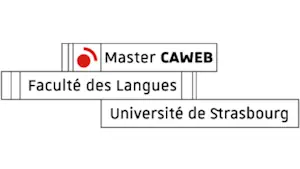NAVER Papago : Providing Better Quality Machine Translation for K-Culture Fans
The Explosive Popularity of Korean Culture in Modern Media
The Korean Wave (or “Hallyu” in Korean) started in the late 1990s as South Korean cultural contents gained popularity in nearby Asian countries. Fast forward 20 years, and you now see an explosion of Korean culture on the internet, social media and YouTube. People who identify themselves as Hallyu fans have reached 89.19 million worldwide. The explosive popularity of Hallyu has been spearheaded by K-Pop, most notably by the seven-member boy band BTS. But Hallyu also encompasses everything about Korean culture, including food, TV, film, clothes, cosmetics and beauty regimes.

Self-Sourcing Translation for One of the World’s Most Difficult Language
Fans of K-Pop self-source English translations of their favorite artists through Twitter or fan sites, and content providers offer English translations for Korean TV shows and contents streamed on their services. Members of fandoms are nevertheless often lost when they try to find English translations for other Korean content or communicate in Korean with their favorite celebrities. Some may be fortunate enough to have a friend who can help translate the Korean language, which is considered one of the most difficult languages to translate due to its complex syntax, unique culture and history, and a massive number of character sets (11,172 letters compared to 26 in the alphabet). However, for those who don’t, they can always rely on the next best thing: machine translation services.
NAVER Papago, Neural Machine Translation Service Recommended by Users
Google Translate is probably the go-to translation service for many machine translation service users. However, when it comes to Korean machine translation, more and more people, especially in K-pop forums, recommend Naver Papago (also available for iOS and Android). This machine translation website and mobile app service was launched in 2017 by NAVER Corporation, South Korea’s largest internet content service company.
Google Translate and Papago are both neural machine translation (NMT) services. Unlike the conventional statistical machine translation (SMT), which translates words, phrases or syntax, NMT uses deep learning to analyze the entire sentence. NMT is also able to create more natural, human-like translations since it continues to learn and evolve using big data.
Papago may have the upper hand over Google Translate when it comes to Korean-English translations because of its abundance in Korean-language contents. NAVER operates Korea’s largest search engine, which dominates the South Korean internet market with a 75% market share. It also provides a wide variety of additional services, including an online cartoon service and personal broadcasting service. All of this acquired colloquial data can be used as data to refine the Korean translations offered in Papago.
While Google Translate offers translations in 103 languages, Papago provides translations for 13. Among these, the four most-used are Korean, English, Japanese and Chinese. However, according to NAVER, tests by external organizations show that the translation quality of those four languages is on average 27% higher than other translation services.
Sentence to Website to Conversation Translation
Both the Papago website and mobile apps provide translations from 13 languages into one another. Select a language pair, enter the sentence in the dedicated section and see the resulting translation in the target language. In the website version, users can directly enter the URL of the website to be translated. They will be provided a with website that has been completely translated into the desired language. The mobile app versions are especially useful when on the road. Mobile Papago offers basic text translation. Besides, it also “interprets” spoken words in real-time and even conversations spoken between two people. Users can use Papago in an offline setting, much like Google Translate’s offline mode. The simultaneous “interpretation” feature and the offline setting will all come in handy for those Hallyu fans who decide to come to Korea to meet their favorite K-celebrity.
Papago, Translating Korean Culture
Translation is more than the literal conversion of one word to another. Good translation also requires the understanding of history and culture. Machine translation has not reached the sophistication level of human translators yet. But innovations have been made, especially in evolving neural machine translations, so that machine translations sound natural. Papago has also embraced the “cultural” aspect of translations by introducing the “honorific Korean” feature for Korean to English translation and vice versa. Honorific Korean is a version of the language that is used to elders or strangers to show respect. Papago’s innovative features handle more than the language aspects of translation. This is a great tool for Hallyu fans aiming to understand the true meaning and messages Korean celebrities and culture want to deliver.
Article written by Jeeyoon Kim, TCLoc Master
Note: This article was written by a student of the TCLoc Master’s. It is an online master’s program in Technical Communication and Localization operated by the University of Strasbourg. Visit the TCLoc website for more information about the program or trends in technical communication and localization.
Other articles
-

Discover our online Master’s CAWEB Program in digital communication
-

Virtual reality and disability : is there a compatibility?
-

Taking your international marketing campaign to local markets: interview with transcreation specialist Claudia Benetello
-

Is Twitch a new broadcasting platform worth considering?
-

The Transcreator, a Key Asset to Your International Marketing Campaign

